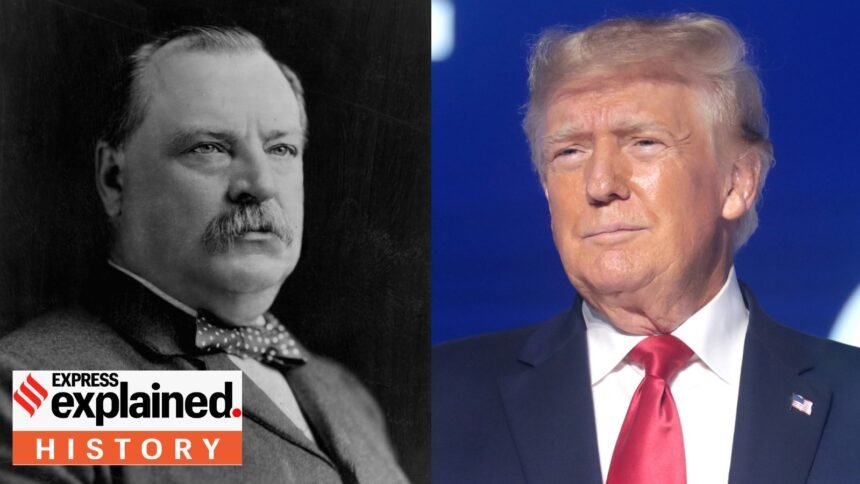in his Wednesday victory speech (November 6), U.S. President-elect Donald Trump said, “I want to thank the American people for giving me the honor of being elected as your 47th president and your 45th president.” He said that he made “history ”, making a rare political comeback as President of the United States.
In fact, the only time a sitting president failed to be re-elected and win the next election was more than a century ago—Democrat Grover Cleveland, who served as president from 1885 to 1889, won and served again from 1893 to 1897 .
Who is Grover Cleveland?
Cleveland was born in New Jersey in 1837.
Daniel Klinghard, professor of political science at the College of Holy Cross Associated Press Cleveland was “viewed as the epitome of responsibility and stability” at the time. But his campaign was not without controversy.
His opponent, Republican candidate James Bryan, was reportedly involved in a bribery scandal, while Cleveland was accused of sexually assaulting a woman and abandoning their child. Given the social norms of the time, Cleveland (then a bachelor) had a child out of wedlock, causing great outrage.

About a decade before his presidential campaign, he met widow Maria Halpin, who claimed he forced himself into a relationship with her. Halpin was later admitted to a local mental hospital and the child was taken away.
According to History.com, Cleveland acknowledged that he may be the father but said that “certainly should not prevent him from serving as president.” Voters also didn’t see this as a disqualifying factor, and Cleveland won the election in 1885. smithsonian magazine Said his opponents tried to spread slogans about the incident: “Mom, Mom, where is my dad?” After his victory, Democrats responded: “Into the White House, hahaha!”
Why Cleveland lost reelection and how he’s coming back
Cleveland attempted to reform the administrative system, just as he had done as governor. He also opposed increased government spending on workers’ issues — something more in line with the established Republican ideology today. “He (Cleveland) vetoed a bill that would have allocated $10,000 to distribute seeds to drought-stricken farmers in Texas,” the White House website reads. The expectation of paternal care weakens the strong character of our nation…”
These policies ultimately cost him his re-election chances. Although he received more votes (the so-called “popular vote”) than his Republican opponent Benjamin Harrison, issues with the way his campaign was run also came into play. However, Harrison won the Electoral College.
Cleveland left the White House and worked as a lawyer for a time, but soon began to openly criticize the administration. He was particularly opposed to the high tariffs imposed by President Harrison. Economic issues also resonate with voters. Klinghard told Associated Press“The president’s model of being an outspoken and clear spokesman for a policy inspired the party” to be emulated by future presidents. It also kept him in the public eye.
“This is where the modern concept of the National Party really comes together. Cleveland has a group of skilled political operators, very wealthy people who believe they benefit from free trade,” Klinghard said. “They spent a lot of time getting Cleveland’s name in front of voters, just as Trump’s allies did, viewing anyone else as a challenge — a competitor,” he added.
The political system at the time was also less organized, with no primaries (held today in which political parties select presidential candidates from a variety of contenders). This made it easier for him to advance again within the system. In the end, Cleveland won the Electoral College and the popular vote, was re-elected president, and was sworn in again at the age of 55.
according to NPRSeveral attempts were made thereafter—President Martin Van Buren, who served from 1837 to 1841, attempted to run as a third-party candidate in 1848; Millard Fillmore from 1850 to 1853 Served, and ran again in 1856. Theodore Roosevelt, who left the White House in 1909, ran unsuccessfully for a third term in 1912 (before the two-term limit became law). Only Trump succeeded.

